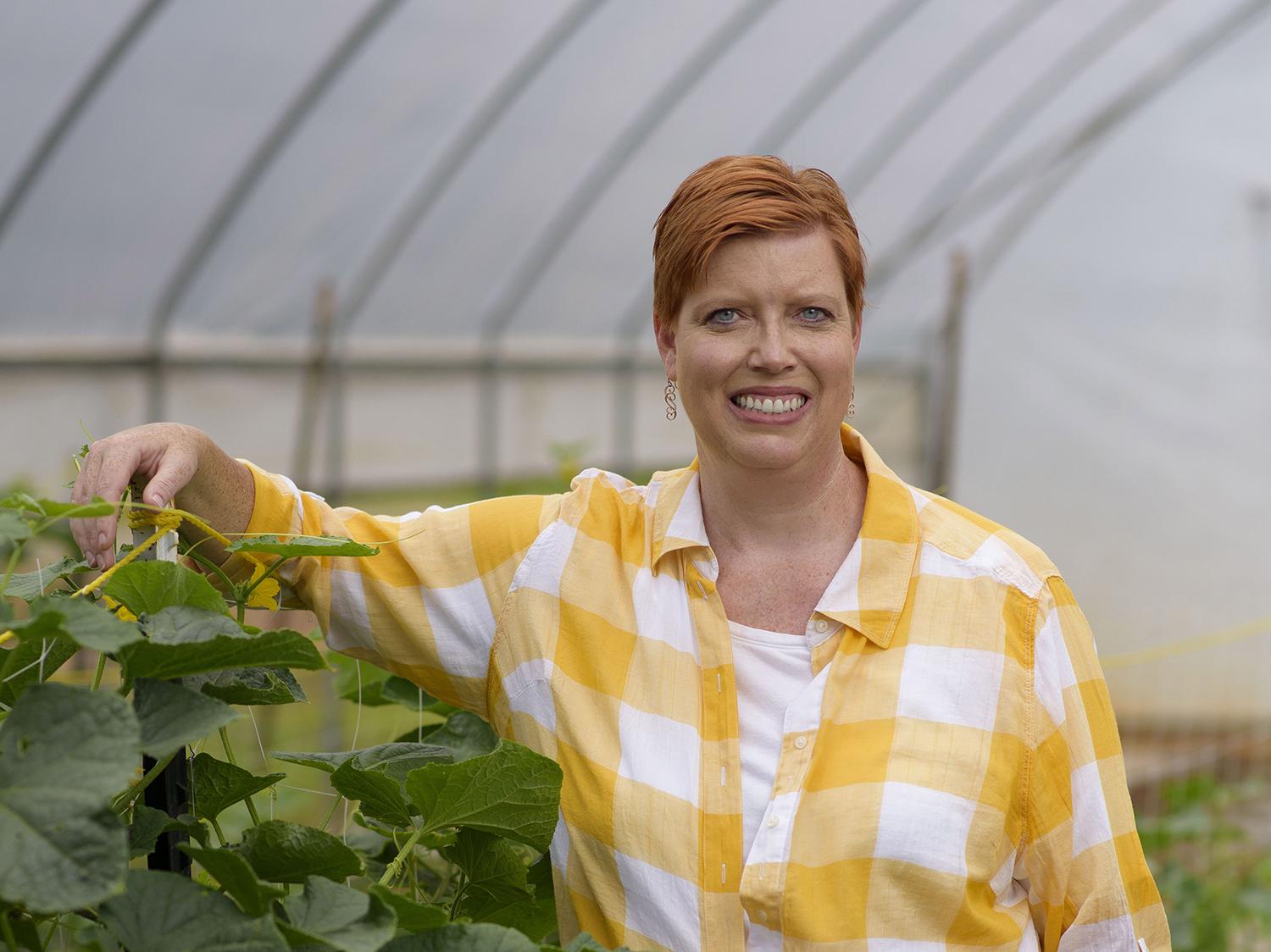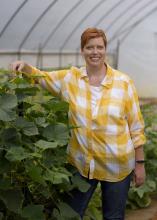Information Possibly Outdated
The information presented on this page was originally released on July 5, 2017. It may not be outdated, but please search our site for more current information. If you plan to quote or reference this information in a publication, please check with the Extension specialist or author before proceeding.
MSU scientist finds her calling in horticulture
BEAUMONT, Miss. -- For 16 years, Christine Coker has been doing what she loves: putting food on people's tables.
"In college, I really liked the study of plants, but I knew I wasn't going to be the world's greatest botanist," she said. "What I really wanted to do was feed people."
As an associate Extension and research professor, she manages the Mississippi State University Beaumont Horticultural Unit -- one of five Mississippi Agricultural and Forestry Experiment Station units in the southeastern region of the state. The 20-acre research station in Perry County serves as a testing and display area for fruits, vegetables and ornamentals suitable for urban gardeners.
"Any small-scale, commercial producer or backyard gardener could come here and do anything they see," said Coker, who teaches the techniques she studies through her Extension work. "The size of our projects ranges from patio containers to a small-scale farm. We also have a lot of raised beds because that's how people garden. Two people would have no problem managing anything we have here."
Coker and two technicians grow different items from season to season, depending on consumer demand, market trends and other factors. Current trials include zinnias, cucumbers, jalapenos, passionfruit, hops, wheat, and wine and table grapes.
"I try to listen to what our clients need and watch what's happening on the horticulture front," she said. "Food production is sexy again, so I am doing a lot of variety trials to determine how different plants perform in our area. Since we now have a floral specialist in the region, and that segment of horticulture is popular among entrepreneurs and home owners, we are also doing some floral trials."
Coker, who splits her time between the Beaumont station and her office at the Coastal Research and Extension Center in Biloxi, supports many school and community gardens. She has worked with teachers in Gulfport, Biloxi and other towns. She recently advised a teacher on installing a sensory garden for her special needs students. Some teachers want an edible garden, and others want a learning garden.
"When I get a request, I start with a checklist to make sure we are meeting the teacher's goals," Coker said. "I ask a lot of questions about where they want it, what they want in it, how big they want it, what it will be used for and who will be involved. Some teachers don't realize gardens can be used to teach every subject in their classroom."
Interest in community gardens is growing on the coast, and Harrison County alone has about 50, Coker said. She often consults with her wide-ranging clients. The youth group at St. Vincent de Paul maintains a garden and gives produce to food pantry patrons. Asian Americans for Change maintains a food pantry with culturally appropriate products, such as rice and noodles. Coker soon will help them prepare to grow vegetables used in Vietnamese dishes.
"I'm really excited about this project," she said. "Right now, I'm working with their translator to do a needs assessment. Once we have a plan, we will begin. I love working with people in our communities and meeting their needs."
Coker typically consults with John Monroe, the district director of the Lamar County Soil and Water Conservation District, on community garden projects. But the information sharing goes both ways.
"One of my responsibilities is to build partnerships with individuals, organizations and groups that support our conservation education endeavors," Monroe said. "The MSU Extension Service has become a great partner, and I call on them weekly."
Monroe also relies on Coker's expertise in his home garden.
"As an avid vegetable gardener, I utilize subirrigated containers on drip irrigation with timers that seem to make my garden a little different," he said. "Christine has visited my place and offered drip irrigation advice along with her expertise on the vegetables themselves. She is one of my go-to people."
Coker has nurtured her love of horticulture since childhood.
"When I was in the fourth grade, my family moved from Nashville to Cross Plains, Tennessee, and 4-H was available at my school," she said. "My first project was public speaking, but then I got interested in food and nutrition projects. I wouldn't have pieced it together then, but that probably influenced my career choice."
Coker has worked for MSU since she earned her doctorate in horticulture from Auburn University. She also holds a Bachelor of Science in biology from The University of Tennessee at Martin and a Master of Science in biology from Austin Peay State University.





